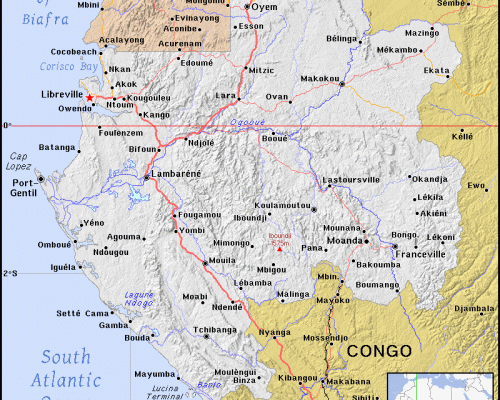Update for travellers in Gabon
1 September 2016 - RPS Partnership
RPS Partnership brings you this update on the situation in Gabon. We are advising all travellers in Libreville to stay in their homes or hotels until the situation becomes clearer. We are advising that you contact your Embassy and ensure you are on their "warden list"; that way you will receive local updates on the security situation.
Avoid going out uless absolutely necessary and try to stay off the streets after dark. Try to tune into local radio to assess what is going on if you need to go out.
Contact us on [email protected] if you are unsure what to do.
The situation in Gabon following the announcement of President Ali Bongo's election victory is volatile and there is the prospect for repeat violence in Libreville, Port-Gentil and Lambarene later on 1 September.
The next 48-72 hours will be indicative of the strength of the opposition movement and its capacity to sustain protests against the Bongo regime.
President Bongo maintains the loyalty of the security forces and no developments since the election results were published would suggest this will change. Any shift in the loyalty of key security personnel or major political defections could indicate a weakening of Bongo’s grip on power, but without these developments he is likely to maintain his hold on power.
Libreville saw significant violence overnight on 31 August (yesterday) after President Ali Bongo was declared winner in a presidential election that both the opposition and many independent observers deemed fraudulent. Clashes between opposition activists and security forces were reported across the city, with rioters setting fire to part of the National Assembly building on Avenue Jean Paul II and the ABC Mall in the Charbonnages district. Among the most significant incident of violence came in the early hours of 1 September, when Gabonese security forces raided the headquarters of main opposition candidate Jean Ping, attacking the building with a combat helicopter, before ground forces launched an assault, resulting in at least two deaths. Violence was also reported in the main opposition hub and oil town of Port-Gentil, where pro-government activists reportedly opened fire on crowds and looting was reported.
Local sources have also reported protests in Ping’s hometown of Lambarene and Mouila in the south of the country.
The situation in Libreville was reported to be calmer today (1 September) albeit with isolated incidents of gunfire, and most businesses were closed amid a heavy security presence on the streets.
Internet and SMS services have been suspended in Libreville and this will likely remain in place until the situation calms. However, there is a strong potential for violence tonight. The level and duration of violence will be a key indicator as to whether the government’s violent response yesterday was successful in quelling the protests, or whether it has inflamed the situation further.
High-risk areas will continue to be in the vicinity of Ping’s headquarters in Charbonnages, as well as other neighbourhoods that have seen recent violence, including Lalala, Ateve and Rio.
The situation in Gabon remains fluid and volatile, but local sources believe that the toppling of the Bongo regime remains unlikely. The president maintains a tight grip on the security forces and in recent months has filled many key military and police positions with members of his Teke ethnic group to ensure their loyalty during the electoral period. The judicial process for disputing the election result is also tightly controlled. The constitutional court, which will validate the election results and rule on any disputes, is presided over by long-term Bongo ally, Marie-Madeleine Mborantsuo, who has ruled in the Bongo family’s favour in multiple previous election disputes. She is closely aligned with the regime and had two children by the current president’s father, the late President Omar Bongo.
The president’s tight grip on the institutions of state leave few options available to Ping to contest the result. Despite the controversies surrounding the result and calls from French Foreign Minister Jean-Marc Ayrault to release local vote tallies, sources familiar with the Bongo administration believe the president is unlikely to engage in dialogue or make significant concessions. It remains to be seen the extent to which Ping will be able to sustain the protests amid such a strong security response. Violence following the disputed 2009 election was restricted to Port-Gentil and quelled relatively quickly after three nights of unrest. Since then, however, anti-government sentiment has grown stronger as the economic situation has deteriorated and the political landscape has fragmented with several prominent defections from the ruling Parti Democratique Gabonais.
The international community will continue to call for an audit of the election results and the deployment of foreign forces to protect expatriates is a possibility if the situation deteriorates further. A French barracks is located close to Charbonnages, where much of last night’s violence took place, and the district is also located next to an affluent residential district popular with French expatriates. If unrest in that district continues, it is possible the French military will intervene to protect and repatriate their citizens.
Contact us on [email protected] for trainnig and any further security services for Gabon and other countries in this region.
Thanks to PGI for their excellent information from Gabon. Click here for further services from their risk portal
Photo: Credit to ian.macky.net


